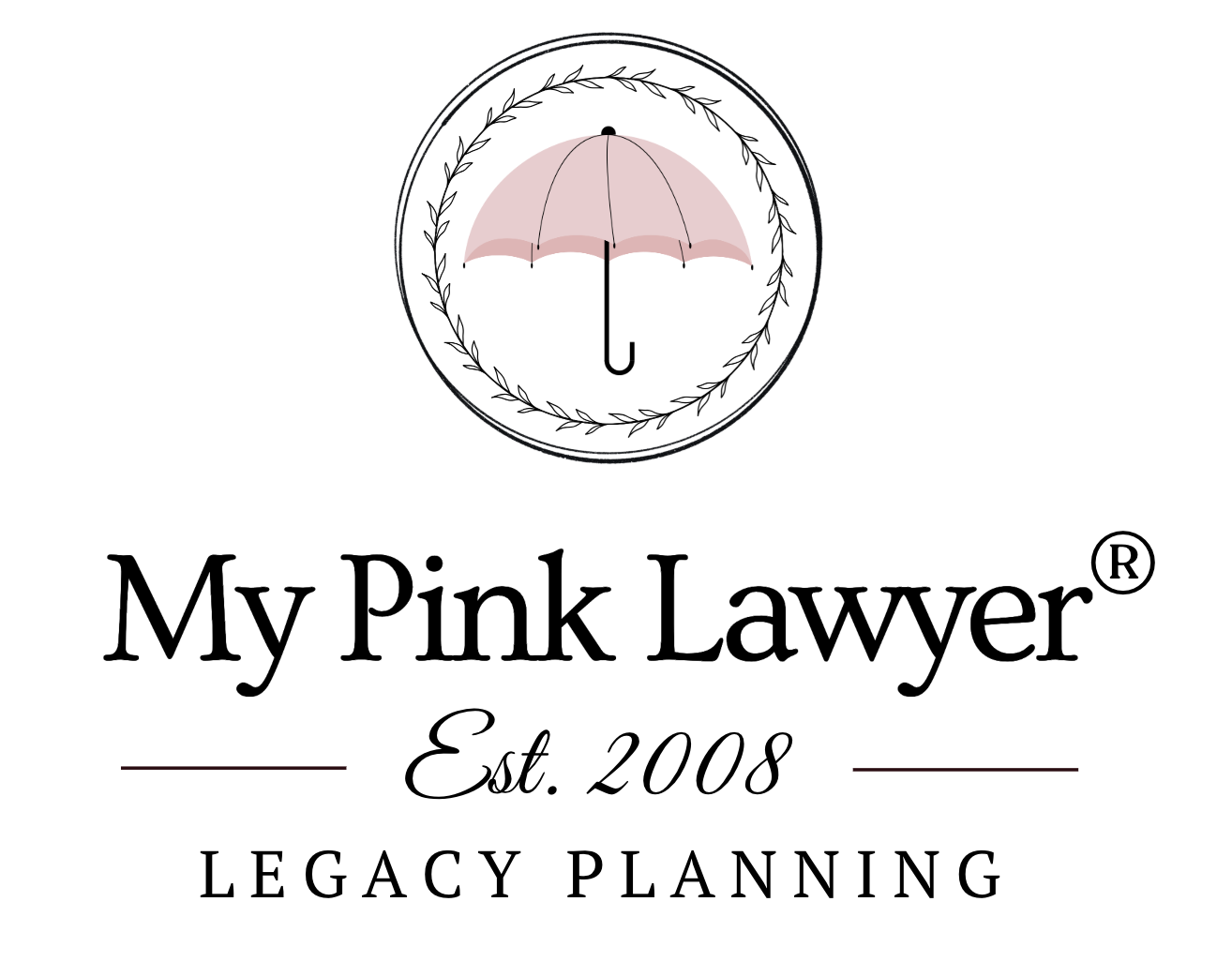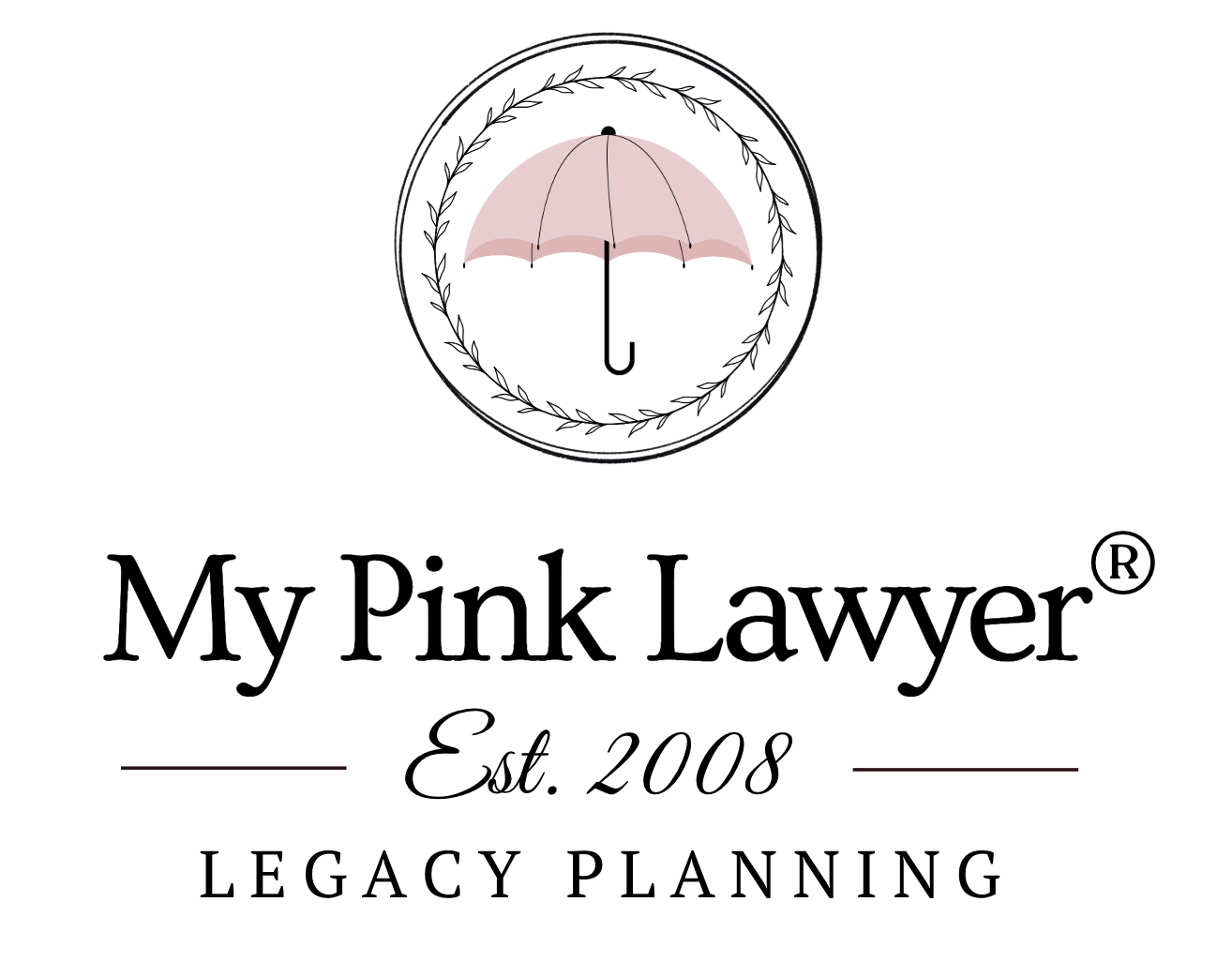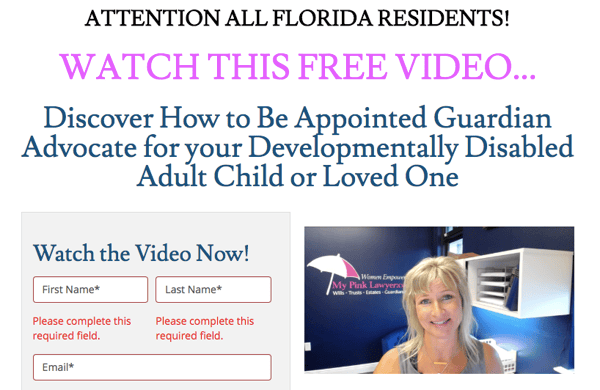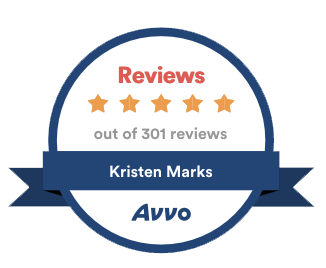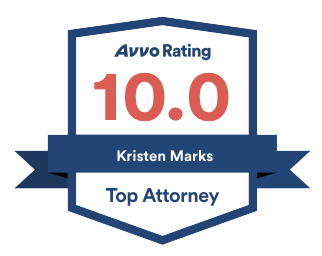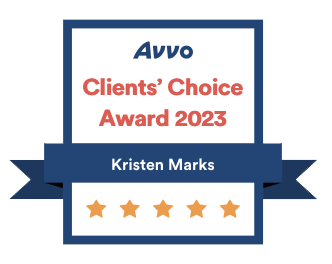Below is the transcript from a video I recorded explaining the process of being appointed guardian advocate for your Florida child who has autism, Down Syndrome, Cerebral Palsy or another developmental disability. The actual video can be found here.
Hi, Kristen Marks here with My Pink Lawyer®, a Florida Family Succession Planning law firm based in Pensacola and serving clients around the State of Florida.
If you are a parent of a child with autism, cerebral palsy, Down’s Syndrome or some other developmental disability, you will need to make plans to continue assisting your child as they transition into adulthood when they turn 18.
In Florida, the legal age of majority is age 18 which means that even though your child may have a diagnosed developmental disability, you as the parent no longer have the legal right to make any medical, financial, legal or educational decisions for your child until you are appointed as your child’s guardian advocate.
Florida’s guardian advocate statutes provide a streamlined way for parents or other interested parties to be appointed guardian over their developmentally disabled children when they turn 18.
As opposed to what I will call an incapacity guardianship (you know, the type of guardianship for elderly folks when they get Alzheimer’s for example), you do not need to have your child examined by three different medical professionals. Instead, we use your child’s existing medical records and IEP reports to document your child’s disability.
After the initial paperwork is filed with the court in the county where your child resides, the court will then appoint an attorney to represent your child.
Your child’s attorney will meet with you and your child and then file a report with the judge indicating if they believe a guardianship is indeed appropriate.
A hearing is then scheduled with the judge who will review all of the paperwork, hear from the attorneys, and maybe ask a few questions of their own. Assuming the matter is unopposed, guardian advocate orders are often signed right at the hearing.
Once appointed, the guardian advocate must then file initial reports with the court within 60 days. These initial reports will disclose matters such as where your child resides, goes to school, his or her social activities, who his or her doctors are, and what income and assets your child has. Typically, the only income and assets your child will have is SSI income and miscellaneous personal effects and clothing of a nominal value.
Once the initial reports are approved by the judge, your child’s court appointed attorney is then discharged. You will continue to be represented by your attorney moving forward.
Annually the guardian advocates will file updated reports with the court for the child.
In our office, we establish uncontested guardian advocate proceedings on a fixed fee basis which includes the filing fees and all attorney’s fees, including your child’s court appointed attorney. Thereafter, we charge nominal annual maintenance fees to file your child’s annual reports.
To learn more, you can reach out to us to schedule a no-obligation guardianship consultation when your child is at least 17 years old. There is no reason to schedule a consultation before then because we will not file anything before your child is 17 ½ anyway.
[Add the following bottom footer on the video:
Call our office to schedule your Guardianship Consultation: 850-439-1191. Currently serving Escambia, Santa Rosa, Okaloosa, and Walton Counties in Florida.]
Here are some more tidbits about the guardian advocate process for you to know:
- No one convicted of a felony is eligible to be appointed guardian in Florida. Unfortunately, this prohibition does affect some Florida parents who are not legally entitled to be appointed their child’s guardian advocate.
- More than one person can be appointed as guardian advocate. Oftentimes both parents will be appointed co-guardian advocates.
· Standby guardian advocates may also be appointed to take over when the initial guardian advocate can no longer serve. You can request standby guardian advocates be appointed at the initial guardianship filing or later down the road.
- Notice must be given to the child’s next of kin when filing a guardianship petition. This means that both parents must be notified even if they are divorced.
- Any interested party may file a petition to appoint a guardian advocate for a developmentally disabled person.
If people are competing to be appointed guardian advocate, the judge, after hearing testimony and reviewing evidence, will decide who should be appointed guardian advocate.
Guardians must submit to a criminal background check and credit report screening unless otherwise waived by the judge. It is common in the Florida Panhandle for judges to waive these requirements unless the guardian application reveals any red flags in these areas.
Guardians must attend a guardianship education class after they are appointed unless it is waived by the judge. It is common in the Florida Panhandle for judges to waive this requirement for parents who are appointed their child’s guardian advocate.
I hope you have found this video helpful in explaining the guardian advocate process in Florida for developmentally disabled adults.
